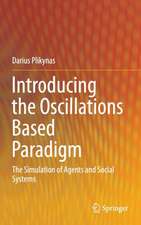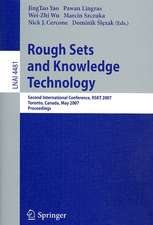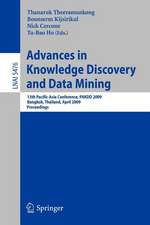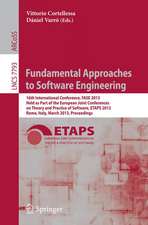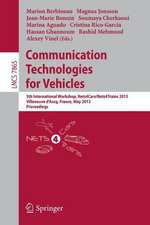The Knowledge Frontier: Essays in the Representation of Knowledge: Symbolic Computation
Editat de Nick Cercone, Gordon McCallaen Limba Engleză Paperback – 23 sep 2011
| Toate formatele și edițiile | Preț | Express |
|---|---|---|
| Paperback (1) | 339.15 lei 6-8 săpt. | |
| Springer – 23 sep 2011 | 339.15 lei 6-8 săpt. | |
| Hardback (1) | 344.34 lei 6-8 săpt. | |
| Springer – 5 oct 1987 | 344.34 lei 6-8 săpt. |
Din seria Symbolic Computation
- 20%
 Preț: 344.34 lei
Preț: 344.34 lei - 20%
 Preț: 640.91 lei
Preț: 640.91 lei - 20%
 Preț: 636.70 lei
Preț: 636.70 lei - 20%
 Preț: 638.17 lei
Preț: 638.17 lei - 20%
 Preț: 637.52 lei
Preț: 637.52 lei - 20%
 Preț: 628.59 lei
Preț: 628.59 lei - 20%
 Preț: 642.05 lei
Preț: 642.05 lei - 20%
 Preț: 631.37 lei
Preț: 631.37 lei - 20%
 Preț: 640.13 lei
Preț: 640.13 lei - 20%
 Preț: 648.85 lei
Preț: 648.85 lei - 20%
 Preț: 634.44 lei
Preț: 634.44 lei - 20%
 Preț: 637.52 lei
Preț: 637.52 lei - 20%
 Preț: 639.30 lei
Preț: 639.30 lei - 20%
 Preț: 635.60 lei
Preț: 635.60 lei -
 Preț: 387.69 lei
Preț: 387.69 lei - 20%
 Preț: 321.00 lei
Preț: 321.00 lei - 20%
 Preț: 336.55 lei
Preț: 336.55 lei - 20%
 Preț: 334.29 lei
Preț: 334.29 lei - 20%
 Preț: 630.23 lei
Preț: 630.23 lei - 20%
 Preț: 646.92 lei
Preț: 646.92 lei - 20%
 Preț: 637.34 lei
Preț: 637.34 lei - 20%
 Preț: 650.32 lei
Preț: 650.32 lei - 15%
 Preț: 628.14 lei
Preț: 628.14 lei - 20%
 Preț: 646.61 lei
Preț: 646.61 lei - 20%
 Preț: 641.74 lei
Preț: 641.74 lei - 20%
 Preț: 324.89 lei
Preț: 324.89 lei - 20%
 Preț: 698.01 lei
Preț: 698.01 lei - 20%
 Preț: 820.62 lei
Preț: 820.62 lei - 20%
 Preț: 644.99 lei
Preț: 644.99 lei - 20%
 Preț: 319.21 lei
Preț: 319.21 lei - 20%
 Preț: 744.71 lei
Preț: 744.71 lei - 20%
 Preț: 349.70 lei
Preț: 349.70 lei - 20%
 Preț: 322.79 lei
Preț: 322.79 lei - 20%
 Preț: 324.71 lei
Preț: 324.71 lei - 20%
 Preț: 337.23 lei
Preț: 337.23 lei - 20%
 Preț: 546.19 lei
Preț: 546.19 lei
Preț: 339.15 lei
Preț vechi: 423.94 lei
-20% Nou
Puncte Express: 509
Preț estimativ în valută:
64.91€ • 67.78$ • 53.81£
64.91€ • 67.78$ • 53.81£
Carte tipărită la comandă
Livrare economică 11-25 februarie 25
Preluare comenzi: 021 569.72.76
Specificații
ISBN-13: 9781461291589
ISBN-10: 1461291585
Pagini: 552
Ilustrații: XXXVI, 512 p.
Dimensiuni: 155 x 235 x 29 mm
Greutate: 0.76 kg
Ediția:Softcover reprint of the original 1st ed. 1987
Editura: Springer
Colecția Springer
Seriile Symbolic Computation, Artificial Intelligence
Locul publicării:New York, NY, United States
ISBN-10: 1461291585
Pagini: 552
Ilustrații: XXXVI, 512 p.
Dimensiuni: 155 x 235 x 29 mm
Greutate: 0.76 kg
Ediția:Softcover reprint of the original 1st ed. 1987
Editura: Springer
Colecția Springer
Seriile Symbolic Computation, Artificial Intelligence
Locul publicării:New York, NY, United States
Public țintă
ResearchCuprins
The Knowledge Frontier: Essays in the Representation of Knowledge is an outgrowth of the IEEE Computer Special Issue on Knowledge Representation (Cercone and McCalla, 1983) containing a collection of seventeen original essays on various aspects of knowledge representation, the glue that holds much of artificial intelligence together. The papers in this book are organized into six sections: (1) overview, (2) logic, (3) foundations, (4) organization, (5) reasoning, and (6) applications. The sections have been arranged so that they can be read in order (more or less), although the degree of interconnectedness is high enough that certain aspects of each chapter can only be fully appreciated after the insights of many other chapters have been accommodated. The problem of knowledge representation breaks down into several subsidiary problems including what knowledge to represent in a particular application, how to extract or create that knowledge, how to represent the knowledge efficiently and effectively, how to implement the knowledge representation scheme chosen, how to modify the knowledge in the face of a changing world, how to reason with the knowledge, and how to use the knowledge appropriately in the creation of the application solution. This volume contains an elaboration of many of these basic issues from a variety of perspectives. This collection maintains the approachability to non-AIers of the IEEE Computer special issue while still having enough grist for even the most ardent AIer's mill. Researchers and students in computer science, engineering, linguistics, psychology, philosophy and mathematics should have an interest in this book.





